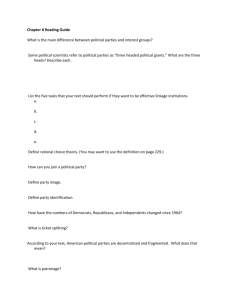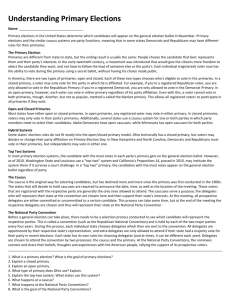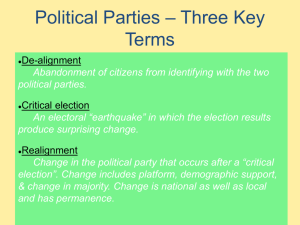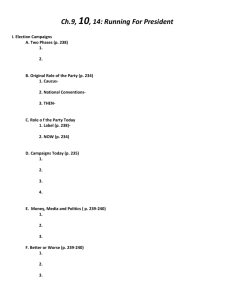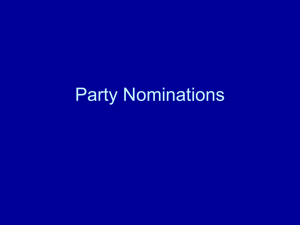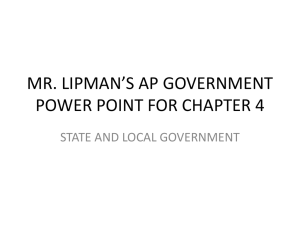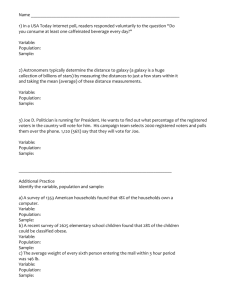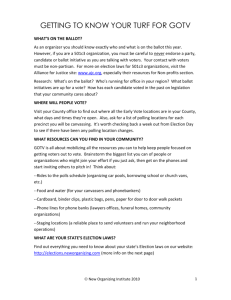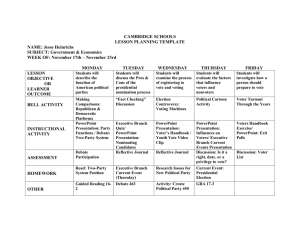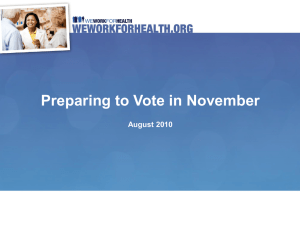Presidential Primaries
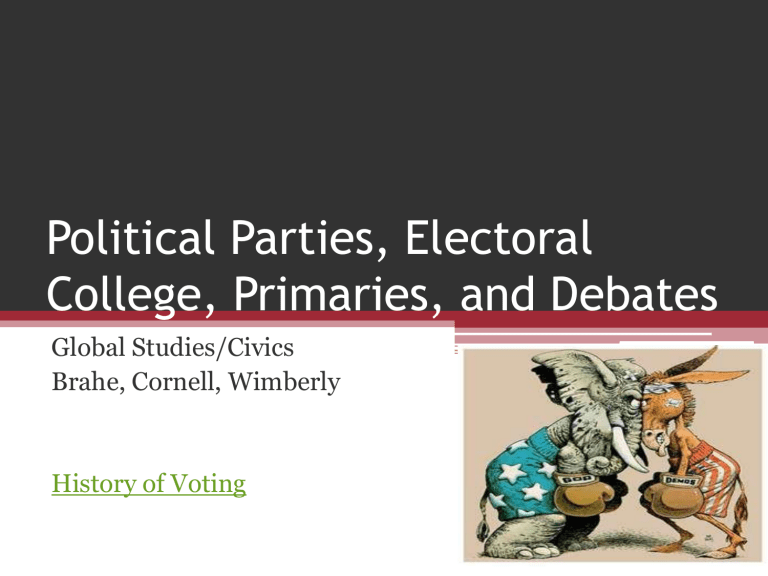
Political Parties, Electoral
College, Primaries, and Debates
Global Studies/Civics
Brahe, Cornell, Wimberly
History of Voting
Political Parties
• Political Party: group of people with common principles seeking to control the gov’t in order to create public policies and programs
•
Major Parties:
▫
Republicans
also known as the Conservatives, Grand Ole Party (GOP ), “rightwing ”
symbolized by the elephant and the color red
▫ Democrats
also known as the Liberals, “left-wing”
symbolized by the donkey and the color blue
• Minor Parties
▫
Lee Nader, famous for running as a Minor Party summed up the chances of the Minors vs the Majors by saying the following; “The minors taking on the majors would be like a person trying to climb a mountain with a greased rope.”
Why a Two-Party System
• History – Naturally developed during George Washington’s
Presidency (even though he tried to avoid them) between his advisors on his cabinet: Federalists and the Anti-Federalists (later,
“Democrat-Republicans)
• Electoral College – modifications made after election of 1800
(issue with President/Vice-President tying in the vote – created a
“ticket”/team with the 12th amendment)
▫ Political Parties nominate people for the positions of President and VicePresident creating a “team”
▫ State’s electors cast their ballots for the candidates won by their state after the popular vote of the citizens
Why Minor Parties are Important
!
Minor parties come up with innovations
– new ideas. Major Parties often steal them and call them their own.
Minor parties criticize the Majors and force them to take a stance on controversial issues.
Minor parties can have an impact in another way. A strong third-party candidacy can play a decisive role--often a “spoiler role”--- in an election.
Election of 1912 is a prime example!
The Progressive Party spoiled any chance of a Republican victory!
Purpose of Primaries
Cast votes to help determine who will represent a political party in the general election
History of the System
• Early 20 th Century (Progressive Era)
▫ Frustration at elections being control by elite few
▫ New system created in an attempt to give more power and control to average voters
• Believed primaries would cause candidates to pay attention to issues the public considered important
• Goal: alleviate corruption in American politics
Types of Primaries
• Closed Primary
▫ registered voters affiliated with a party go to the polls to cast a vote for one candidate within that party
▫ (only Republicans can vote for Republicans and Democrats for Democrats)
▫ Independent voters (opt not to choose a party, but are registered voters) usually aren't allowed to cast a ballot
• Open Primary (Wisconsin)
▫ voter can cast his or her ballot for either party (but only one)
▫ voter must usually choose a party to vote for by making a public statement at the polling station
voter will tell the election volunteer which party he/she chooses
will then receive a ballot containing the candidates for that party
▫ some open primaries allow voters to choose which party's candidate to vote for privately in the polling booth (WI)
Delegates to National Convention
• To receive the nomination at the National
Convention, candidate has to win delegates
• Delegates assigned in 2 ways:
▫ Proportional
▫ Winner-takes-all
• GOP tends to lean toward
Winner-takes-all (Wisconsin) but Democratic primaries are almost exclusively proportional
• Delegates are usually people who are involved in their state's politics
▫ volunteers, local party chairs or other interested citizens
▫ states also offer uncommitted delegates, aka super delegates , usually elected officials from the state (can pledge or remain uncommitted until convention)
Remember the areas of focus for our campaigns
• Foreign : policies involving other countries
• Domestic: Policies affecting laws/rules within the United States borders
• Social : issues affecting society, culture, values, etc. – can be world issues or local issues
Nominee
Party
Electoral vote
Popular vote
Percentage
# of States carried
Barack Obama Mitt Romney
Democratic Republican
332
65,910,437
51.1%
206
60,932,795[2
47.2%
26 + DC 24
2012 Election Results
